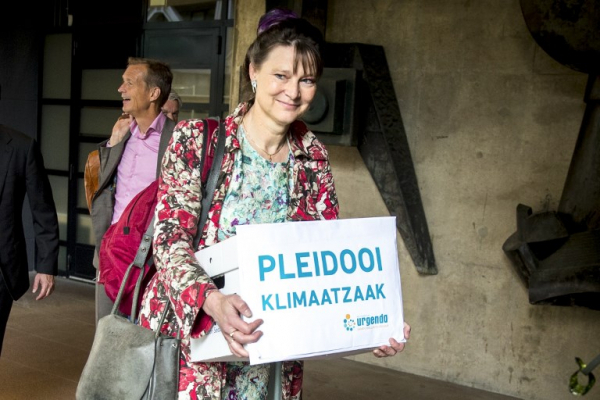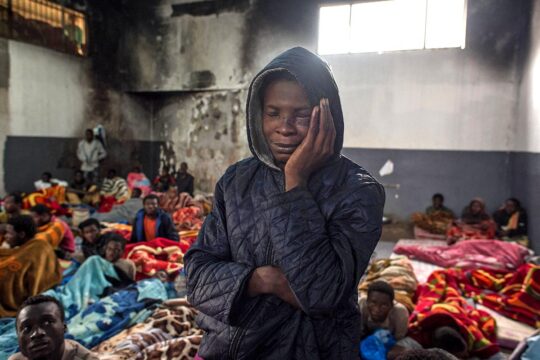On September 15, 2016, the Prosecutor of the International Criminal Court (ICC) published a policy paper in which she announced her intention to prosecute serious crimes of environmental destruction. This document says her office will focus particularly on crimes "that are committed by means of, or that result in, inter alia, the destruction of the environment, the illegal exploitation of natural resources or the illegal dispossession of land". The same document says that the Office of the Prosecutor “will also seek to cooperate and provide assistance to States, upon request, with respect to conduct which constitutes a serious crime under national law, such as the illegal exploitation of natural resources, arms trafficking, human trafficking, terrorism, financial crimes, land grabbing or the destruction of the environment”.
Two years have gone by since that declaration of intent. Issues linked to environmental destruction, global warming and their impact on the future of humanity have never been so much a focus of public concern. The effects of stressed ecosystems, ecological disasters caused by man and the profound, irreversible imbalances they cause can no longer be contested, and their likely causes can be identified with increasing precision. There are more and more constitutional, legislative and judicial initiatives and responses. New judicial horizons are opening, pointing to raised awareness.
A historic decision
Some of these initiatives put aside the human-focused vision to focus on protection of “common wealth” and the living planet, like States whose Constitutions or legislation now consider nature as a subject in law. In 2008, for example, Ecuador put Nature, or “Pachamama”, into its Constitution. In 2010 Bolivia introduced a law on Mother Earth. New Zealand has recognized as a legal entity the Whanganui river, now considered a living entity. Meanwhile in the United States, an association filed a complaint in September 2017 with the state of Colorado to have the river of the same name recognized as a judicial entity.
Others use adversary law to solicit a modern interpretation of the rights and obligations of States, to force those in power to include climate considerations in their policies. The October 9 judgment by a Dutch court is part of this movement. In 2015, the organisation Urgenda, which fights for rapid energy transition, successfully reminded the judges that the Dutch State’s “duty of care”, combined with its international obligations, meant it must take the necessary measures to cut by 2020 CO2 emissions produced in The Netherlands by 25 % compared with the levels of 1990. The Dutch government appealed this historic decision handed down by the trial chamber judges. The appeals court decision was awaited with hope, anxiety and impatience by many activists throughout the world. The decision of the appeals court in The Hague is a historic turning point for at least two reasons. First, it deems that the State’s inaction harms the right to life and to private and family life of the country’s citizens, rights that are internationally protected. Second, it validates the action taken by an NGO and 886 citizens, thus opening the door for other initiatives from civil society, which is already preoccupied by these issues.
Private interests and the future of humanity
In Colombia, 25 children and adolescents, supported by the Dejusticia association, went to the Supreme Court in early 2018 to order the State to protect Colombia’s Amazonian forest from deforestation. The Supreme Court accepted their request and in April ordered the Colombian government to present an urgent plan of action ensuring the right to a healthy environment, which is enshrined by the Inter-American Court of Human Rights in a November 15, 2017 consultative opinion.
Unfortunately these national initiatives that aim to make States take their environmental responsibilities seriously do not always carry weight against the enormous power of multinational companies. Chevron, for example, recently won a case at the Permanent Court of Arbitration in The Hague overturning a decision of Ecuador’s judicial authorities which had ordered the American oil company to pay 9.5 billion dollars compensation for ecological damage in the Amazonian region. Ecuador is considering a possible appeal against this decision, made public on September 7, 2018. Whatever the final outcome, the message from that decision is clear: the interests of big private business are still considered more important than the general interest, the future of humanity and the planet.
It is becoming obvious that any “local” environmental destruction has serious consequences for the whole planet. The massive deforestation of the Amazonian forest, the Congo basin or in Indonesia – which according to some sources is responsible for 25% of annual greenhouse gas emissions, almost the same as the US – is a sad illustration of this fact. In addition to its impact on global warming, the disappearance of forests destroys the life of indigenous people and the biodiversity it houses. Without the barrier of the forest, wind and water erosion have free reign, which most often leads to rapid desertification and soil degradation. At the same time greenhouse gases, which are responsible for the current global warming, are accelerating the melt of polar icecaps and glaciers throughout the world, including in the Himalayas, the Andes and the Alps. So it is vital that we concern ourselves with international protection of the environment as an issue for the whole of humanity, on which everyone’s peace and security depends.
ICC: Hope against hope
In this context, can international criminal law help save the environment? That is the idea that the ICC Prosecutor seems to have wanted to convey in her 2016 policy document, which raised a wave of hope in the environmental protection community. Among the existing international mechanisms the ICC is indeed one of the few international jurisdictions to which non-state actors can have recourse through the Office of the Prosecutor. Its mandate allows it to prosecute individuals for genocide, crimes against humanity, war crimes and crimes of aggression. However, its Statute does not contain any definition of environmental crimes in peace time. Its Article 8 indeed refers to environmental crimes, but only in the context of a conflict and with narrowly defined conditions. This absence of clear incrimination is no doubt one of the reasons why the Prosecutor’s declaration of intent has had no follow-up. In the last two years, there has been no public investigation, no indictment for crimes against the environment, and the wave of hope raised by the policy document has dissipated.
The initial optimism was not, however, without reason. In July 2010, for example, Sudanese President Omar Al Bashir was indicted for poisoning wells and water pumps in towns and villages of Darfur. This attack on the environment, categorized by the Prosecutor as forcible submission to living conditions that would lead to physical destruction, was included in one of the genocide charges in the arrest warrant against the Sudanese president.
At least one of the complaints (called “communications”) to the office of the ICC Prosecutor concerns destruction of the environment. In 2014, the Global Diligence consultancy asked the Prosecutor to investigate forced transfers of populations in Cambodia since July 2002. According to this communication, mass forced displacements of people are part of a widespread, systematic policy of land-grabbing by the ruling elite for purposes of industrial exploitation. This policy has resulted in many cases in destruction of the environment as well as land previously held and worked by civilian populations. Global Diligence says the perpetrators could be subject to prosecution for crimes against humanity, forced displacement, arbitrary imprisonment, persecution and other inhuman acts.
Calling brave, creative lawyers
Given the greed of some commercial companies for mining, oil and other exploitation, it would be surprising if the Cambodian case were unique. It is public knowledge that mining interests in the Democratic Republic of Congo have fueled conflicts in the region. Massive deforestation is one of the consequences of the violence there. This destruction of the tropical forest is also continuing relentlessly and without much resistance in Brazil, with the construction of the Belo Monte dam for example, or in Indonesia for purposes of intensive agriculture. The short, medium and long term consequences for people living there and for the whole of humanity can be dire, as we have said.
However, it seems that the Cambodia communication filed four years ago is still under preliminary consideration, even though the “classic” crimes against humanity it speaks of clearly fall under the ICC’s jurisdiction. What can the ICC do about environmental crimes that are not clearly defined as such in the Statute of Rome? What crimes defined in its Statute could be used to combat this scourge? Whilst the answers to these questions clearly depend on the individual situations, the groups targeted and the alleged acts, they also depend on the creativity of lawyers dealing with these issues and the will of the Prosecutor.
At the moment, none of the acts contributing significantly to global warming are defined as crimes in the Statute of Rome. Now that their impact on the future of humanity can no longer be contested, some jurists are urging a modification of the Statute to include a crime of ecocide. Despite the complexity of the legal issues and political stakes, let us hope they manage to convince the ICC Assembly of States Parties.
In the meantime, if it is not already too late, it is to national courts like in The Netherlands that we must turn for the law to come to the environment’s rescue.

MAUD SARLIEVE
Maud Sarliève is a lawyer and teacher at the University of Paris-West-Nanterre. She has worked notably for the office of investigating judges at the Extraordinary Chambers in the Courts of Cambodia, for EULEX in Kosovo and a defence team at the Special Tribunal for Lebanon.






